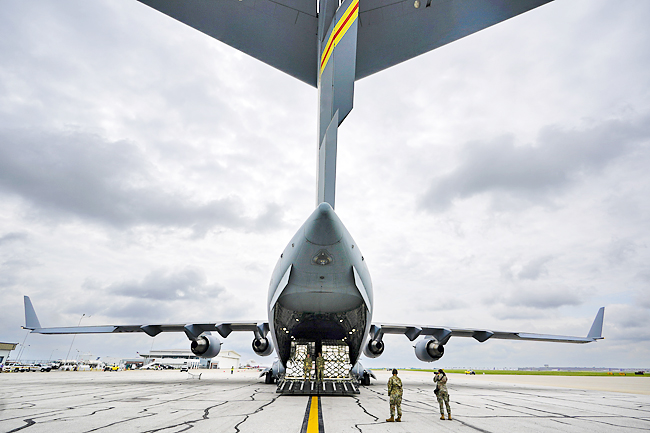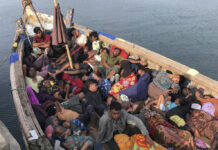WASHINGTON (AFP) – A United States (US) military plane bringing several tonnes of much-needed baby formula from Germany landed on Sunday at an airport in Indiana as authorities scramble to address a critical shortage.
Scarcity of medical-grade baby formula caused by production problems and supply-chain issues has created grave problems for thousands of parents whose infants rely on it, sending them in frantic searches for the product.
The cargo plane took off from the US air base at Ramstein, Germany, carrying more than 70,000 pounds of powdered formula, the White House said.
US President Joe Biden posted about the flight on Twitter from Japan, where he is on a five-day Asia trip.
“Our team is working around the clock to get safe formula to everyone who needs it,” he said.
Biden tweeted an update later on Sunday, saying more formula was on its way to the US via a second shipment.

“We have secured a second flight to transport Nestle specialty infant formula to Pennsylvania,” the president posted. “The flight and trucking will take place in the coming days, and I will continue to keep you updated,” he said.
The first shipment will cover about 15 per cent of the immediate need, presidential economics advisor Brian Deese said on CNN.
He added there are “more flights in train that will be coming in early this week” as part of what the administration has dubbed “Operation Fly Formula”.
The formula was flown to Indiana because it is a hub for Nestle, a major domestic producer. It will be quality-tested at a nearby lab before being distributed.
The formula shortage has been developing for months, aggravated not only by supply-chain issues linked to the Covid-19 pandemic but by the closing of the largest US formula-making plant, a Michigan factory owned by Abbott Laboratories, amid concerns that contamination may have led to the deaths of two infants.
“We had a manufacturer that wasn’t following the rules, and that was making formula that had the risk of making babies sick,” Deese said. “So we have to take action.”
Another problem, he said, was that US formula production had become concentrated among just three companies.
“We’re going to have to work” on ways to increase competition, he said.



















































